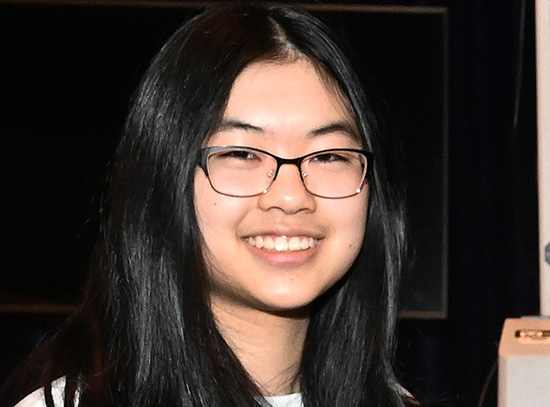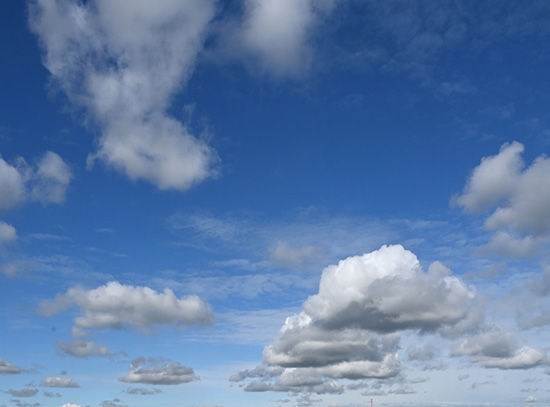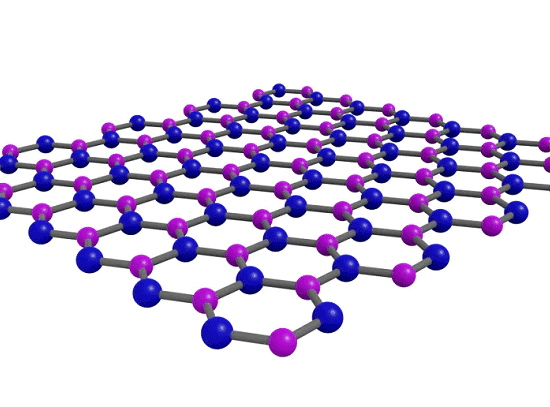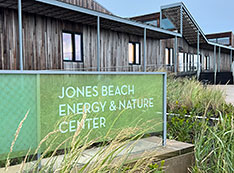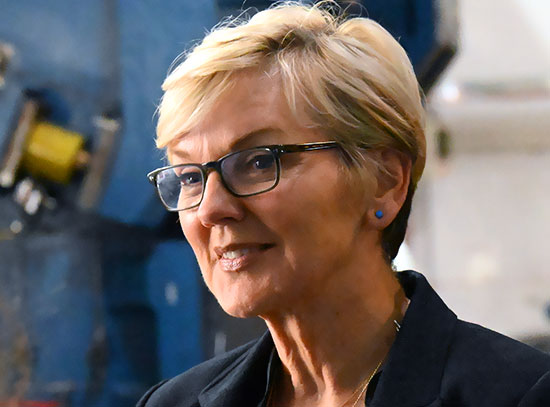Developing the Nuclear Chemistry Experts of Tomorrow
August 17, 2015
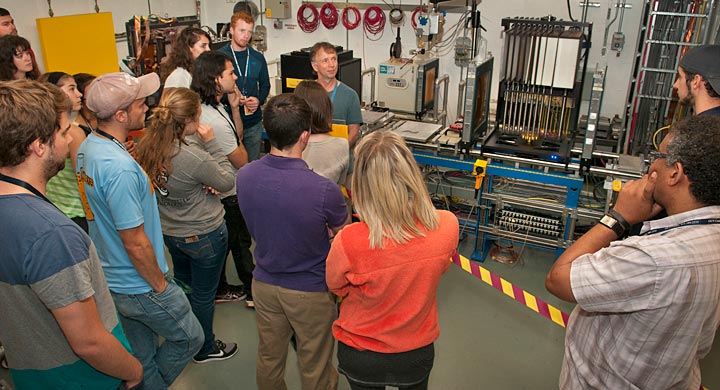
Summer school students receive a hands-on lesson at the NASA Space Radiation Laboratory (NSRL).
This summer, 12 college students from across the United States had the opportunity to learn all that Brookhaven Lab has to teach about a vital but often overlooked area of chemistry – one that spans everything from nuclear reactors and the safe handling of nuclear material to hospital diagnostic tools and cutting-edge medical research. Sponsored by the U.S. Department of Energy and the American Chemical Society, the Summer School in Nuclear and Radiochemistry has been instructing some of the country’s best and brightest undergraduates in all things nuclear science for 30 years.
“Nuclear chemistry focuses on things related to nuclear power, the nuclear fuel cycle, nuclear weapons, astrophysics, and nuclear physics,” explained Louis Peña, the director of the summer school and a researcher in Brookhaven’s Biological, Environmental, and Climate Sciences Department. “Radiochemistry is the sub-discipline that involves attaching radioactive atoms to molecules, which is used largely for medical imaging, therapy, and research. And you need the same basic background to do both nuclear chemistry and radiochemistry.”
Not only do the students get the opportunity to see Brookhaven’s facilities up close during the six-week program, but they also get to work with the actual materials that are essential to nuclear science — the radioactive isotopes of elements, or radioisotopes.
About a fifth of the program’s alumni end up pursuing nuclear or radiochemistry at the graduate level, while another half of the students go into advanced chemistry, physics, or nuclear science, with others going on to medical school or careers in industry. But in all cases they get to carry forward the unique skills and experiences they gained at Brookhaven Lab.
To learn more about the program visit: www.bnl.gov/newsroom/news.php?a=25821
2015-5887 | INT/EXT | Newsroom




